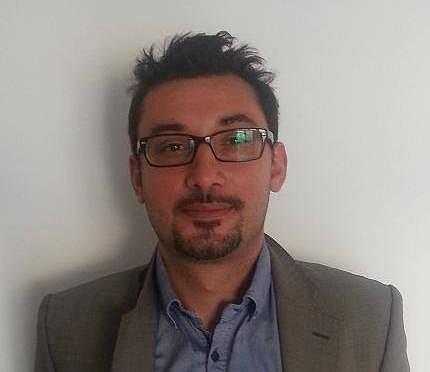Julien Mendjeli, the Frenchman who wants a business in a country of paradoxes

More than ten years have passed since French Julien Mendjeli came to Romania. Ten years in which this “country of paradoxes” made him a little bit Romanian, changed some of his views, but never made him want to go back to his home country. And he doesn’t want his Romanian story to stop here.
Julien first arrived in Romania in the summer of 2004. He was still a student then, so he had to return to France three months later when his training period ended. Little did he know at that time that Romania was going to become his home for over ten years.
He returned to Romania a year later, as a sales representative for furniture company Parisot Group. Over the years, he worked in the banking system in Romania, as well as in retail. In the fall of 2014, he started working at AGS Bucharest but has recently decided to end that chapter too.
So there he is, a temporarily unemployed French guy still wanting to live in Romania. And he has big plans for that. Julien, together with three other expats living in Romania, plans to open his own business on the local market.
“We are trying to find something that Romania doesn’t have, something that the country does have and can work for us, or something that is of common interest for all of us. We have been in Romania for more than ten years and instead of being employees we should be self-employed, entrepreneurs,” he says.
Nothing is yet established, but Julien hopes to see this idea become a reality. He knows exactly what kind of manager he wants to be: transparent, honest and human.
When speaking about Romania, Julien always refers to it as “the country of paradoxes” and admits that he likes that. “I have a little attraction to paradox, in a way it’s like order in chaos,” he says laughing.
Growing up in a bohemian district of France, surrounded by art and culture, Romania was indeed a change for Julien - one that he enjoyed.
There aren’t many things that he doesn’t like about his adoptive country. For example, he doesn’t like the people who do their best to look classy and elegant but, in fact, are very rude and sometimes immature. But, on the other hand, this is balanced by the many other Romanians who are warm and polite.
He doesn’t like the level of corruption but sees that the authorities have started a “huge cleaning” campaign. Julien also finds the administration a little bit heavy and complicated, but sometimes it’s still easier to do some things than in France. For example, when renting a flat, the owners don’t require so much information like they do in his home country.
“So this is the paradox. You have typical stuff, but, on the other side, it is balanced by something that is much easier to do,” Julien admits.
When it comes to places in Romania, he likes the mountain areas, or cities such as Sibiu and Brasov. But he doesn’t like Romanian seaside resorts such as Mamaia, which, he says, “doesn’t have any charm.”
Julien enjoys living in the capital city Bucharest. A “weird town” with interesting architecture that offers a wide range of restaurants and bars. The Frenchman likes to get lost in the big city, take photos and discover all of Bucharest’s faces.
The capital is like “the city that never sleeps”: there are always people in the streets, having a drink, talking to their friends or partying, and Julien fully enjoys all these. Not so much the traffic and the rude drivers - but not enough to make him want to leave Bucharest.
Romania should do more to promote itself - foreigners like Julien have only good things to say about Romanian food, for example, or about its countryside and landscapes. He recommends all foreigners to come to Romania and thinks that Romanians should do the same: be proud of their country.
“I think Romania is evolving in the right direction. I think there are still things to do in Romania, I think that there are many segments that are not covered yet as they are covered in Western Europe, some services that maybe should also be implemented in Romania. I think that people that refuse to come to Romania are not that open minded,” Julien says.
Although he kept some of his French particularities, after more than ten years in Romania, he admits that he became a little bit Romanian. He changed some of his views and now sees life a little bit different. One thing is for sure: he speaks very good Romanian.
Irina Popescu, irina.popescu@romania-insider.com













